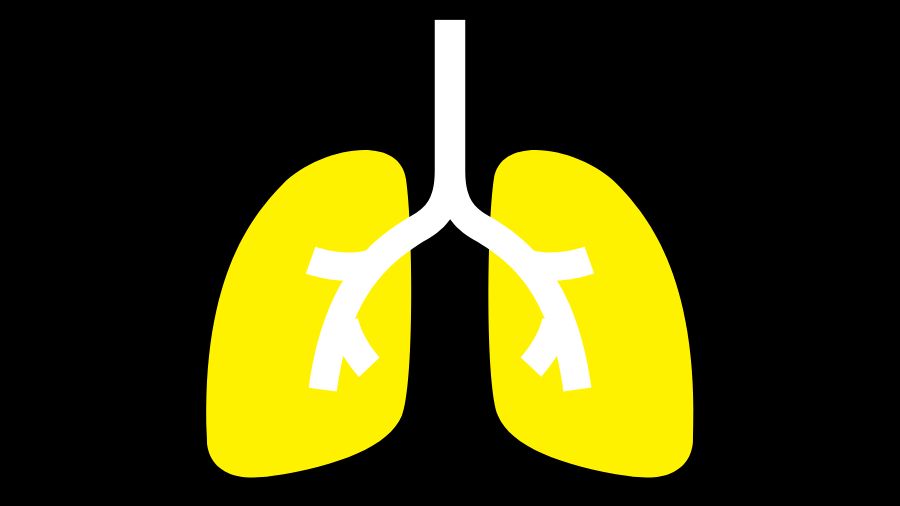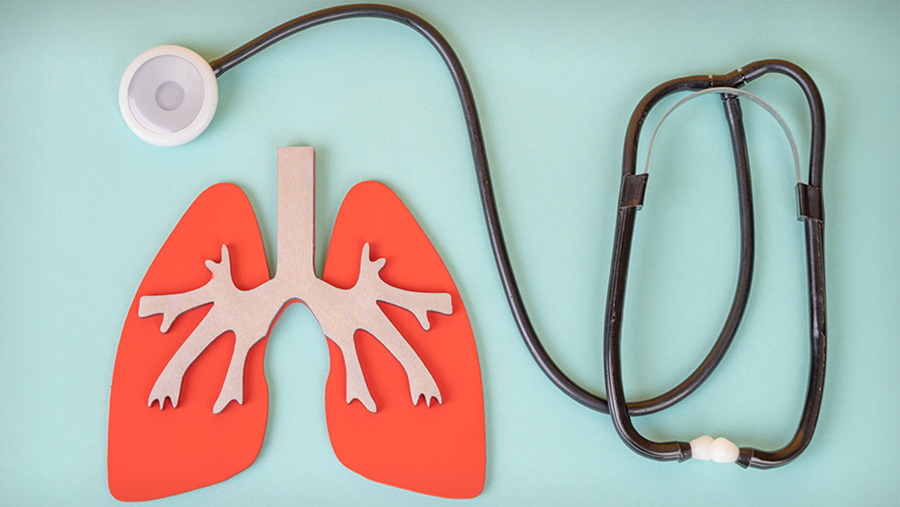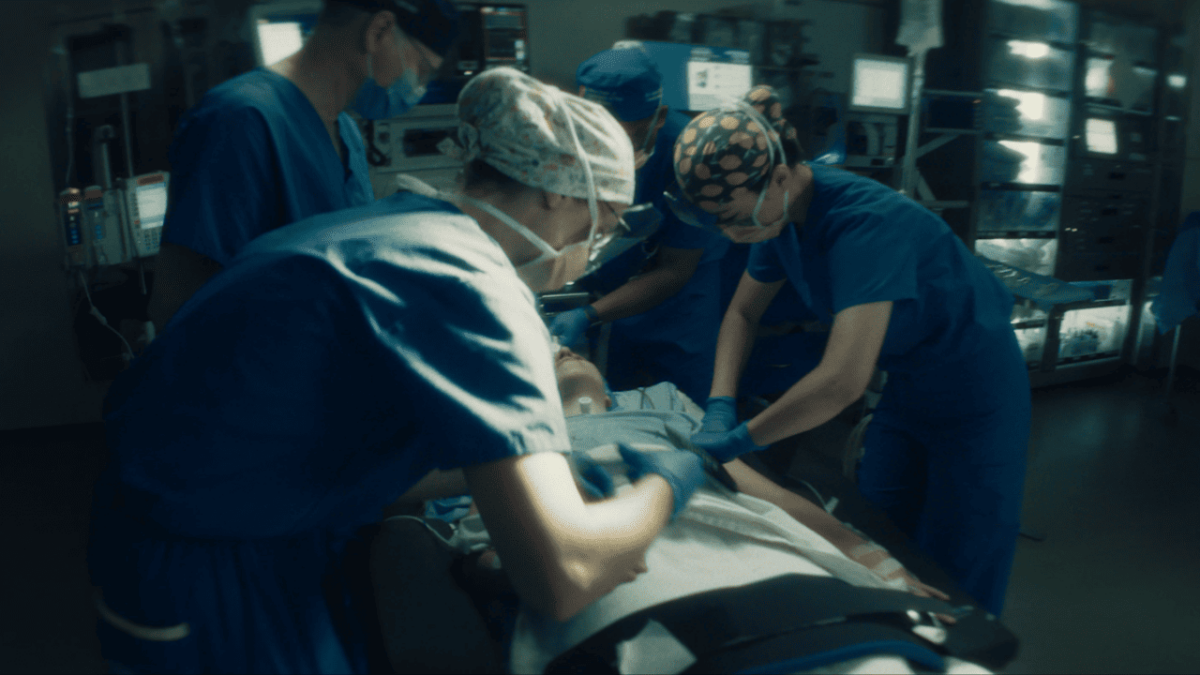As a social worker, Ashley Comrie knew how to stay safe during COVID. She and her husband Kirk did everything right – they stayed home, they stayed apart from others and, on the rare occasions when Kirk went out for essentials, he wore a face mask. During the lockdown, they cheered themselves up by dreaming of a more positive future, one that included children.
Despite all their precautions, they both contracted COVID and Ashley’s diagnosis was even more alarming. Her CT scan revealed COVID nodules, and she was admitted to UHN’s Toronto General Hospital right away. By day five in hospital, Ashley’s oxygen levels plummeted. “Nothing was okay,” she remembers. “Every machine I was hooked up to kept going off.” During her hospital stay, Ashley was transferred in and out of the ICU, leaving her terrified, alone and in pain. She was also worried about her family, especially Kirk as he also recovered from COVID. The kindness of the ICU nurses and respiratory technicians helped her cope.
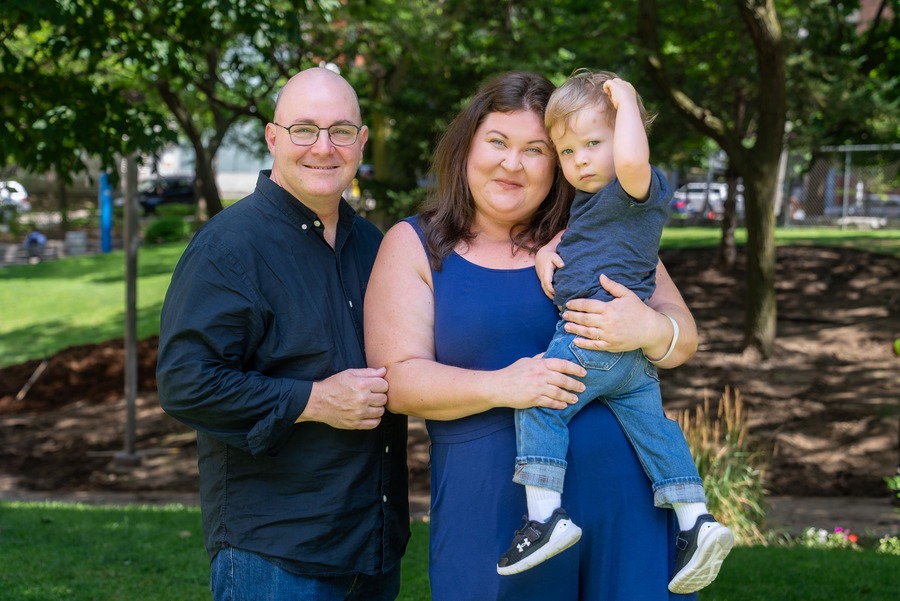
“We treat some of the sickest patients in Canada,” explains Dr. Eddy Fan, who is Medical Director of the Extracorporeal Lung Support (ECLS) Program at UHN. “From the moment when this critically ill patient arrives in the ICU, it’s incredible how quickly the entire team clicks immediately into action. Taking care of very sick patients in the ICU is a team sport – and we have a great team from top to bottom at UHN.”
Ashley suffered a double lung collapse and started coughing up blood.
After 45 days in hospital, Ashley was transferred to Bridgepoint, for further rehabilitation when it was discovered that she had an acquired brain injury from COVID. After two months, Ashley tested negative and was able to go home but she was left with a very challenging physical, mental and emotional recovery. She went from working 18-hour days as a Masters-educated social worker to not being able to speak. She was off work for 18 months while she had to relearn everything.
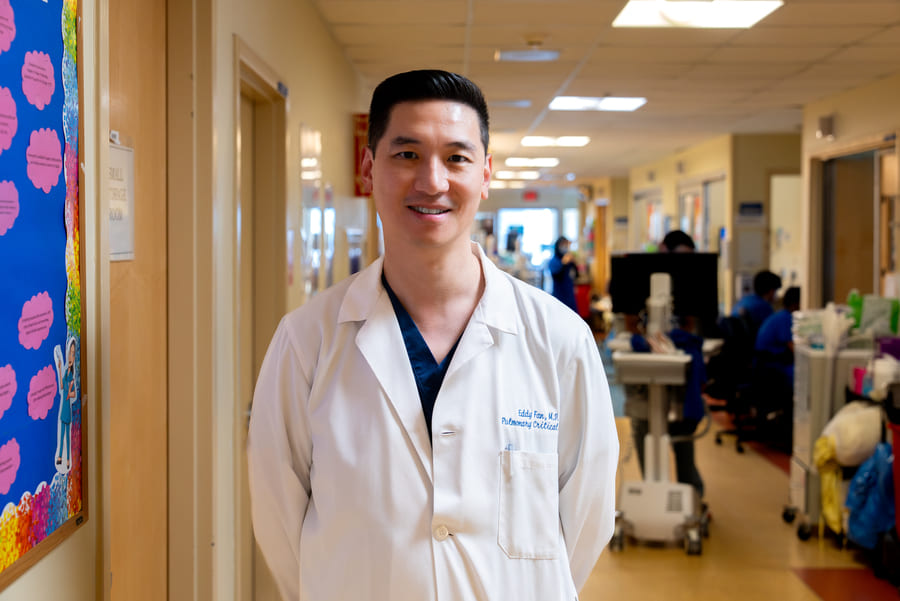
Understanding the recovery pathways from critical care
For patients like Ashley, the recovery from COVID-19 can be a long and difficult process. Several factors can influence patient recovery like age, pre-existing medical conditions and general health. Sometimes, interventions like mechanical ventilation or the use of ECMO (extracorporeal membrane oxygenation), a life support system for patients with acute respiratory failure, are crucial and life-saving but can also prolong patient recovery time.
Despite the long recovery times and complications, critical care experts like Dr. Margaret Herridge are supporting patients through the CANCOV long-term outcomes program for COVID patients. This program ensures that patients who spent time in the ICU are not left without the essential long-term care they require for their complicated health issues. The continuum of care, including respiratory therapists, physiotherapists, occupational therapists and more were an incredible support for patients like Ashley as she shared, “I’m doing occupational therapy twice a week, speech therapy twice a week and physical once a week, some of it virtually. Therapy has helped. I’ve learned strategies to adapt.”
Caring for the patients beyond the hospital
For Ashley, the mental, physical and emotional support she received from her care team at UHN was essential to getting her back to her life. Not only for Ashley, but her family was supported by UHN through this difficult recovery process. Family caregivers experience a traumatic life event and the stress of providing complex care which can also compromise their health. Care transitions can be complex and the multidimensional health needs of the ICU patient and the family caregiver are often overlooked. Through programs like CANCOV, patients and families can receive systematic, longitudinal follow up care.
“I have had the privilege and joy of seeing post-COVID patients and their families in follow up and getting to know the people whose bodies our ICU team tended and helped to bring back to life,” shares Dr. Herridge.
Ashley credits the team with getting her life back.
In 2022, she went back to work and after a second bout of COVID, she and Kirk started a new chapter in their lives. Despite the odds, Ashley became pregnant and gave birth to a son, Clayton, who they describe as the light of their lives. “Dr. Herridge made this possible.”

No one ever changed the world on their own but when the bright minds at UHN work together with donors we can redefine the world of health care together.
